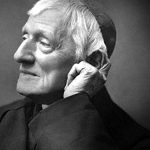Nikola Tesla was a Balkan visionary whose influence continues to shape the very world in which we live in myriad ways.
Every year on July 10, the world marks the birth of Nikola Tesla—a man whose genius continues to shape our technological civilization. Born in 1856 in the village of Smiljan, in present-day Croatia, Tesla was an ethnic Serb who built his scientific legacy in the United States. His intellectual heritage transcends national borders and belongs to all of humanity.
More than a day of remembrance, Nikola Tesla Day is a celebration of the boundless human capacity to imagine, invent, and defy limits. His groundbreaking work on alternating current (AC), wireless transmission, and radio laid the foundation for the modern electric age. Yet Tesla was more than an inventor—he was a visionary, a humanist, and a symbol of scientific universalism.
A Global Scientist With Balkan Roots
Though widely known as an American inventor—his name even gracing one of the world’s most prominent tech brands—Tesla’s identity and memory remain deeply rooted in the Balkan region. Serbia proudly hails him as a national icon. Croatia honors him as a native son. Throughout Bosnia and Herzegovina, Montenegro, North Macedonia, and Slovenia, schools, streets, and institutions bear his name. His legacy, therefore, offers a rare example of shared cultural pride in a region often burdened by divisions, rivalries, and the weight of historical grievances and injustices.
In an era of polarization and fragmentation, Tesla represents something radically different: a symbol of unity grounded in knowledge and progress. His life story crosses borders, ethnic lines, and ideologies—inviting the Balkans to redefine cooperation not just in politics, but through innovation, science, and shared values.
A Bridge, Not a Battleground
Tesla’s transnational legacy offers the Balkans a unique opportunity to foster a more integrated and future-oriented narrative. Rather than asking “Who claims Tesla?”—as has often been the case—regional leaders and institutions might instead ask: “How can Tesla’s legacy serve as a platform for scientific collaboration, educational exchange, and technological development?”
A joint “Tesla Initiative”—featuring cross-border research centers, innovation parks, and scholarship programs—could serve as a model of soft diplomacy and knowledge-driven integration. In this way, the Balkan countries could not only honor a son they share, but also chart a new and promising chapter of cooperation in a region that desperately needs it.
Tesla’s Message to the 21st Century
Though spoken more than a century ago, Tesla’s words remain hauntingly relevant today:
• “The present is theirs; the future, for which I really worked, is mine.”
His message to younger generations can be summarized in several key thoughts:
- Believe in yourself, even when others don’t understand you. Tesla was often dismissed and misunderstood, but he never gave up on his ideas.
- Knowledge is the most powerful weapon in the world. He believed that science stood above politics and that curiosity and learning were (and remain) the engines of progress.
- Work for the benefit of humankind. Tesla wasn’t driven by wealth. Everything he created was directed toward the betterment of the entire world.
- Respect nature. He argued that only by connecting with natural forces could we truly understand the real power of science.
In a world facing climate change, geopolitical instability, uncertainty, and technological upheaval, Tesla’s belief in the emancipatory power of science stands as a moral compass. He envisioned a world in which free energy, wireless communication, and human ingenuity would liberate rather than dominate. Unlike many of his contemporaries, Tesla rejected the pursuit of wealth or fame; his passion lay in contributing to the common good.
The American Dimension
Tesla spent his most creative and influential years in the United States, where his genius flourished thanks to the openness of the American scientific and entrepreneurial ecosystem. In many respects, Tesla embodies the very essence of the American dream: an immigrant who, through talent and determination, made an indelible contribution to global progress. The United States continues to celebrate him not only as a scientist, but also as a cultural icon—a beacon of ingenuity, independence, and innovation.
As we face a global future marked by both growing interconnection and deepening fragmentation, Tesla reminds us that knowledge knows no borders. His legacy is a call to resist short-term thinking, ideological dogmas, and divisions, and instead invest in the enduring power of science, education, and human dignity.
Conclusion: Tesla as a Unifying Force
In the 21st century, Nikola Tesla stands not only as a symbol of past achievements, but as a strategic cultural heritage for the future—especially for the Balkans, but also for a global society in search of unifying figures. His identity, unbound by nationality or religion, can serve as a common language for dialogue, cooperation, and innovation.
The celebration of Tesla’s birthday should go beyond nostalgic reverence; it should serve as a springboard for international and regional partnerships. In honoring his legacy, we uphold the values he stood for: curiosity, peace, knowledge, and the belief that the future can—and must—be better.
About the Author: Zijad Bećirović
Dr. Zijad Bećirović is the Director of the International Institute for Middle-East and Balkan Studies (IFIMES), Ljubljana. Dr. Bećirović holds a degree in Economics, a Master’s degree in Communication Science, and a PhD in Economics. His research work focuses on intercultural management, intercultural communication, contemporary relations between the West and the Islamic world, Islam and Judaism, and Islamic law. He has also devoted his studies to examining various social aspects of the Middle East and the Balkans, international relations, and management.
Image: Shutterstock/vkilikov


















